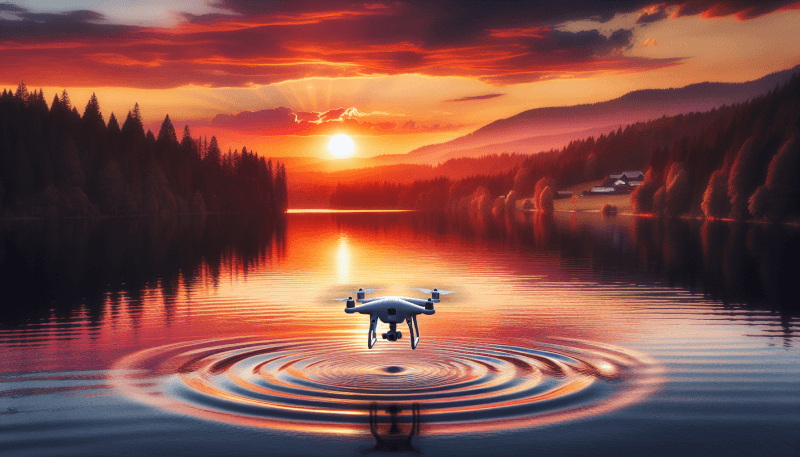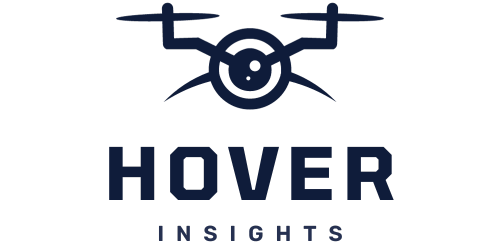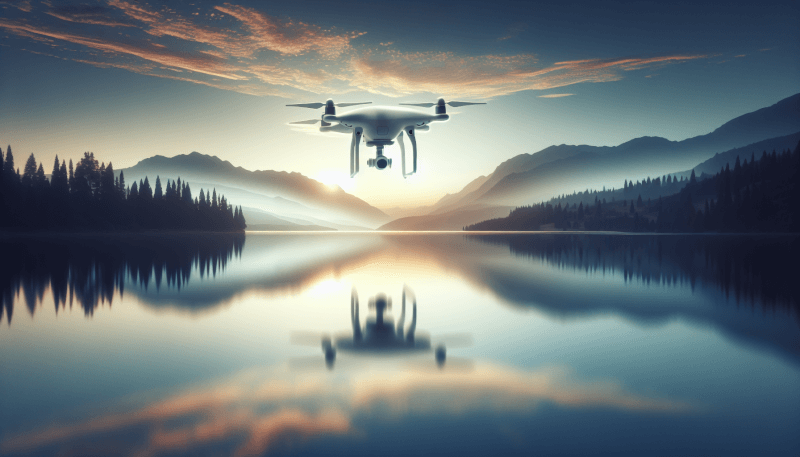When it comes to flying drones, one key consideration is the noise and disturbance they can create. Whether you’re capturing stunning aerial footage or simply enjoying a hobby, finding ways to minimize the noise and disturbance can enhance the experience for both you and those around you. In this article, we’ll explore the top methods to ensure a quieter and less disruptive drone flying session, so you can enjoy your flight without causing unnecessary noise or disruption to others.
Choose the Right Drone
Consider the Noise Level
When selecting a drone, one of the key factors to consider is the noise level it produces. Drones can vary significantly in the amount of noise they generate, with some models being much quieter than others. Choosing a drone with a lower noise level will help to minimize disturbance for those around you.
Look for Noise Reduction Features
Many drone manufacturers are aware of the need for quieter drones and have introduced noise reduction features in their models. These features can include the use of quieter propellers, improved motor design, or even built-in sound insulation. When researching drones, be sure to look for models that specifically mention noise reduction features.
Opt for Quieter Drone Models
Some drone models are known for their lower noise emissions. These models are designed with noise reduction in mind and strive to provide a more peaceful flying experience. By opting for a quieter drone model, you can enjoy flying without causing unnecessary disturbance to others.
Fly in Designated Areas
Follow Local Regulations
One of the most important aspects of responsible drone flying is following local regulations. This includes adhering to any noise-related restrictions or guidelines that may be in place. Familiarize yourself with the rules and regulations in your area before taking to the skies with your drone.
Use Approved Flight Zones
To minimize noise and disturbance, it is essential to fly your drone in approved flight zones. These zones are designated areas where drones can be flown safely and legally. They are often chosen to minimize the impact on populated areas and sensitive locations such as nature reserves or hospitals. Check with local authorities or drone-related organizations to find out where approved flight zones are located in your area.
Avoid Noisy or Sensitive Locations
When choosing where to fly your drone, it is important to avoid noisy or sensitive locations. Noisy locations, such as residential areas or busy streets, can be disruptive to the peace and quiet of the surrounding environment. Sensitive locations, such as wildlife areas or private properties, should be respected to avoid causing any distress or privacy concerns. By being mindful of where you fly, you can minimize disturbance and ensure a more enjoyable experience for everyone involved.

Fly at Appropriate Times
Check for Local Noise Restrictions
In addition to following local regulations, it is crucial to check for any specific noise restrictions that may be in place. Some areas may have designated quiet times or restrictions on noise levels during certain hours. By familiarizing yourself with these restrictions, you can ensure that you fly your drone within the permitted noise limits.
Avoid Early Morning or Late Evening Flights
To minimize disturbance, it is best to avoid flying your drone early in the morning or late in the evening. These times are often associated with more tranquil environments, and the sound of a drone buzzing overhead may be more noticeable and disruptive during these hours. By being considerate of the time of day, you can show respect for the peace and quiet of your surroundings.
Consider Noise Levels in Busy Areas
When planning your drone flight, take into consideration the noise levels in busy areas. If you are flying in a location with a lot of other noise, such as a bustling city center, the sound of your drone may blend in more easily and be less disturbing to those around you. However, be mindful that even in busy areas, excessive noise can still cause annoyance, so it is always best to strive for quieter flight whenever possible.
Use Propeller Guards
Install Propeller Guards
Propeller guards are an essential accessory for any drone owner, not only for safety but also for noise reduction. These guards are protective covers that attach to the drone’s propellers, creating a physical barrier between the propellers and surrounding objects. By installing propeller guards, you not only reduce the risk of accidents but also help to dampen the noise produced by the spinning propellers.
They Aid in Noise Reduction
Propeller guards act as a noise-absorbing barrier, reducing the sound emitted by the drone. By reducing the noise produced by the propellers, propeller guards help to create a quieter flying experience. Additionally, the guards can help redirect the airflow and minimize the disturbance caused by the propellers.
Also Protect Drones and People
In addition to noise reduction, propeller guards provide protection for your drone and those around you. They act as a shield, preventing any contact between the propellers and people or objects, reducing the risk of injury or damage. By using propeller guards, you can fly your drone confidently, knowing that you have taken necessary safety precautions.
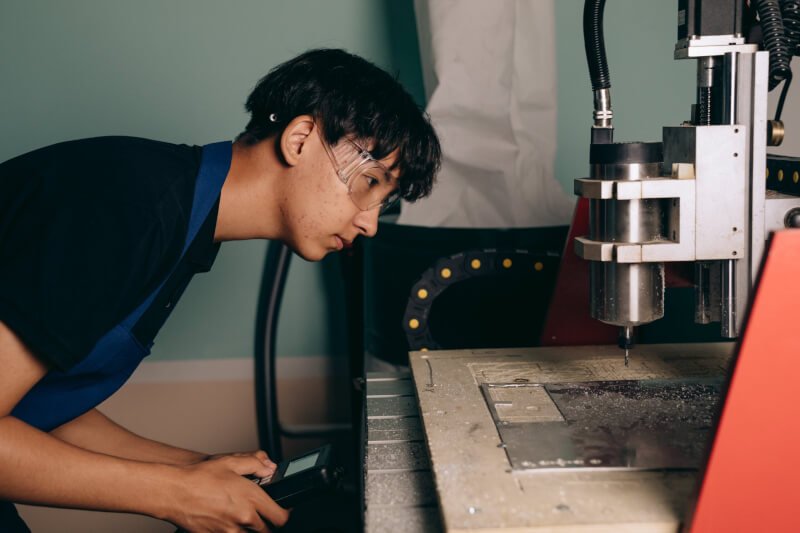
Maintain and Balance Propellers
Keep Propellers Clean
Regular maintenance of your drone’s propellers is essential for optimal performance and noise reduction. Dust, dirt, or debris on the propellers can cause imbalance and increase the noise generated during flight. Cleaning the propellers regularly will help to maintain their efficiency and minimize noise emission.
Ensure Propellers Are Balanced
Imbalanced propellers can cause excessive vibration and noise during flight. To ensure a quieter flying experience, it is important to balance your drone’s propellers. Propeller balance can be achieved by checking each propeller’s weight and adjusting as necessary. Balanced propellers will rotate smoothly, reducing noise and vibration.
Replace Damaged or Worn Out Propellers
Damaged or worn-out propellers can be a significant source of noise and disturbance. When propellers become damaged or worn, they may not rotate as smoothly, causing increased noise levels. It is important to regularly inspect your propellers and replace any that show signs of wear or damage. By using well-maintained propellers, you can minimize noise and ensure a more enjoyable flying experience.
Optimize Flight Path and Altitude
Choose Optimal Flight Routes
When flying your drone, carefully consider the flight path you take. By choosing an optimal route, you can minimize noise and disturbance. Avoid flying directly above or close to people or sensitive areas. Plan your flight path to maximize distance from noise-sensitive locations and minimize the impact on those around you.
Avoid Sudden Movements and Speed Changes
Sudden movements and speed changes can not only affect the stability of your drone but also increase noise levels. Jerky movements and rapid changes in speed can create more turbulence and noise during flight. By flying smoothly and avoiding sudden movements, you can reduce noise emission and create a more pleasant flying experience.
Fly at a Higher Altitude When Possible
Flying at a higher altitude can help to minimize noise and disturbance. As sound waves disperse more at higher altitudes, the noise produced by your drone will be less noticeable at ground level. When conditions and regulations permit, consider flying your drone at a higher altitude to ensure a quieter flight and reduce disturbance to those on the ground.
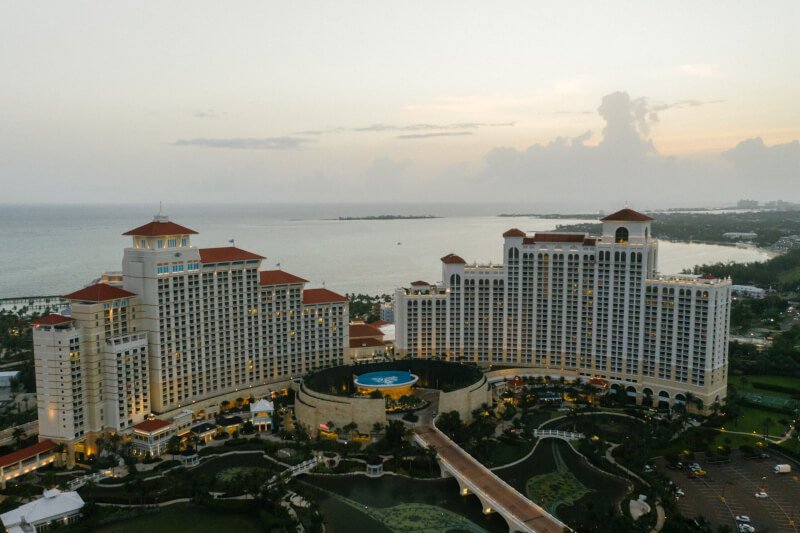
Use Low-Noise Propellers
Invest in Low-Noise Propellers
Low-noise propellers are specifically designed to reduce noise emission during drone flight. These propellers are often made with special materials or have unique designs that help to minimize noise production. Investing in low-noise propellers can significantly contribute to a quieter and more considerate flying experience.
They Produce Less Disturbance
Low-noise propellers are engineered to produce less disturbance during flight. By reducing the noise emitted by the propellers, these specialized propellers minimize the impact on the environment and those nearby. When coupled with other noise reduction methods, such as propeller guards or flight path optimization, low-noise propellers can greatly contribute to a quieter drone experience.
Compatible with Some Drone Models
It is important to note that not all drone models are compatible with low-noise propellers. Before purchasing low-noise propellers, ensure that they are compatible with your specific drone model. Manufacturers often provide information about compatible propellers for their drones, which can help you make the right choice and achieve a quieter flight.
Choose Quieter Flight Modes
Select a Quieter Flight Mode
Some drones offer specific flight modes designed to reduce noise emissions. These quieter flight modes adjust various aspects of the drone’s operations, such as motor speed or propeller rotation, to minimize noise production. When available, selecting a quieter flight mode can significantly reduce disturbance and help you fly more considerately in quiet environments.
Some Drones Have Specific Noise Reduction Modes
Certain drone models come equipped with specific noise reduction modes. These modes are designed to limit the noise emitted by the drone, making them particularly suitable for flying in noise-sensitive areas. Check the specifications and features of your drone to see if it includes noise reduction modes that can contribute to a quieter flight.
Minimizes Disturbance in Quiet Environments
Using a quieter flight mode not only reduces noise emissions but also minimizes disturbance in quiet environments. These modes allow you to fly more discreetly and respectfully, ensuring that your drone does not disrupt the tranquility and peace of the surrounding area. By choosing a quieter flight mode, you can enjoy your drone flight while minimizing disturbance for those around you.
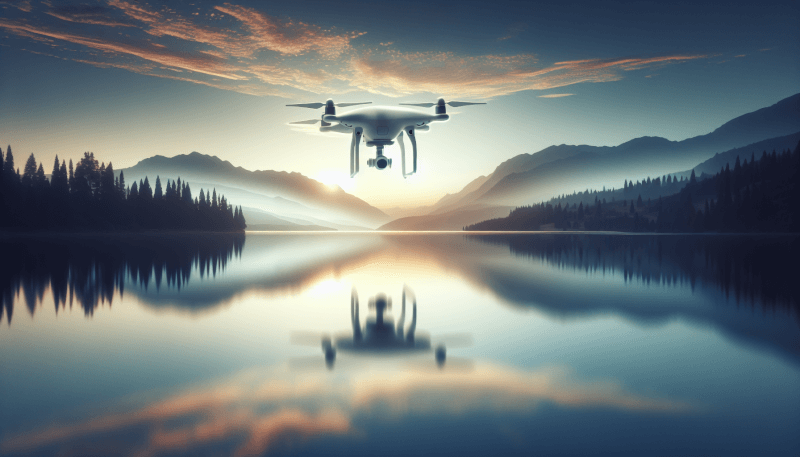
Insulate the Drone
Use Sound-Absorbing Materials
To further reduce noise emission, consider insulating your drone with sound-absorbing materials. Foam padding or other sound-absorbing components can be applied to the drone body to help dampen the noise produced during flight. These materials absorb sound waves, preventing them from propagating and reducing the overall noise level of your drone.
Apply Foam Pads or Vibration Dampeners
Foam pads or vibration dampeners can be applied to specific parts of your drone to further reduce noise and vibration. By reducing vibrations, you can help minimize noise emission, leading to a quieter flying experience. The application of foam pads or vibration dampeners can be especially beneficial if your drone tends to produce excessive noise or vibrations.
Reduces Noise Emission
By insulating your drone with sound-absorbing materials, you can significantly reduce noise emission during flight. The use of foam padding or vibration dampeners helps to absorb sound waves, preventing them from propagating and minimizing the overall noise produced. Reducing noise emission not only creates a more peaceful flying experience for yourself but also fosters a considerate and respectful approach to drone flight.
Consider Distance and Perspective
Maintain a Safe Distance from People and Animals
Maintaining a safe distance from people and animals is essential to minimizing disturbance during drone flight. Flying too close to individuals or animals can cause anxiety, fear, or even harm. By keeping a safe distance, you can ensure the well-being and comfort of those nearby and contribute to a peaceful and respectful environment.
Keep Perspective in Mind
When flying your drone, it is important to keep perspective in mind. While your drone may be a thrilling and exciting gadget, it is crucial to remember that others may not share the same enthusiasm. Consider the impact of your drone on the environment and the people around you, and fly with a sense of responsibility and awareness.
Limit Disturbance to Nearby Individuals
Ultimately, the goal of minimizing noise and disturbance while flying drones is to limit the impact on nearby individuals. By incorporating the tips and techniques discussed in this article, you can create a more considerate and enjoyable experience for yourself and those around you. By being mindful of noise levels, flight paths, and the well-being of others, you can make drone flying a peaceful and harmonious activity.
